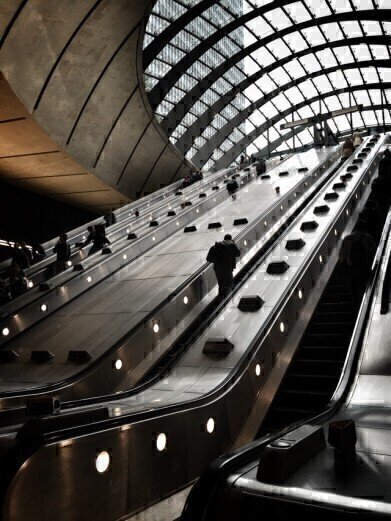Air Clean Up
Is London's Worst Pollution Underground?
Feb 10 2019
While London is known and loved for its busy streets, great public transport and bustling city life, one of the consequences of such a densely-populated and highly-visited city is the amount of pollution it produces – with a big market for technology to capture pollutants.
Using the underground tube is a convenient way to get around the city, which is seen by most as an eco-friendlier alternative to driving. But a recent study by the Committee on the Medical Effects of Air Pollutants found that particulate pollution levels on parts of the London Underground is around 30 times higher than that measure besides busy roads in the capital.
The study’s findings
The research took place over a 10-day testing period at Hampstead Station on the Northern Line, which is the deepest station on the underground network. On average, the concentration of particulate pollution underground was found to be about 30 times higher than the results measured close to a busy road.
A commuter travelling on a bus through the capital would be exposed to around a third less particulates than a commuter travelling a similar length journey on the tube.
While the study wasn’t focused on the causes of these significant increases in pollution levels, researchers suggested that it was “likely due to the system’s age and the fact that large parts of the network are in deep, poorly ventilated tunnels”.
Moving forward
With such significant results, the Committee has proposed a variety of recommendations as to how Transport for London (TfL) can further their understanding of the issue and implement changes to reduce pollution levels, including:
- Improving risk assessment by gaining a deeper knowledge of the concentrations and properties of a subway, the generally exposed population and the health impacts of prolonged or short-term exposure to particulate pollution underground.
- Continue monitoring levels of particulate pollution to better understand the influencing factors, such as passenger numbers, ventilation, train piston effect and station design.
- Conduct further research into the potential health impacts of particulate pollution exposure in order to encourage changes and educate regular commuters on the potential dangers of long-term exposure.
Chairman of the committee, Professor Frank Kelly, claims that they are still “uncertain about the health effects” but reiterated that commuters “shouldn’t really change their attitude to using the tube”. “These particles are of a different nature from the ones above ground, so we are uncertain about their health effects”, he continued, furthering their recommendation for continued research into the pollution.
Events
Apr 24 2024 Sao Paulo, Brasil
May 05 2024 Seville, Spain
May 13 2024 Munich, Germany
May 23 2024 Beijing, China
May 23 2024 Beijing, China














